|
It seems that there is something innate in our yearning for summer. As a child and student, I longed for the last day of school when I could trade in my early morning alarms and textbooks for sleeping in and spending time with friends. While summers in adulthood do not usher in quite the same change of schedule or freedom from responsibilities, I nonetheless eagerly await them. What is it that stirs this desire for summertime within us? What lessons of summertime can we bring into our spiritual lives? In the bustle of daily life it can be hard to find time for any rest, let alone that which truly restores and invigorates us. It is good that we work and labor, but we were not created for that alone. Jesus tells us, “Come to me, all you who labor and are burdened, and I will give you rest.” (Matthew 11:28) We can find this rest firstly in times of silence and prayer with our Lord. And, I think we can also find it in the long days of summer. The extra hours of sunlight or the extra days of vacation provide opportunities to lay our burdens of busyness down at the Lord’s feet. Far from eschewing or running away from responsibilities, these times of rest create opportunities to live out the rhythm of work and rest God desires for us. If summer affords you a bit more time to slow down, take some of these moments to reflect on how you can reorder your days to find a balance of work and rest to live throughout the year. How is the Lord calling you to deeper rest this summer? For many people the shorter, colder days of winter can be difficult to endure. The desire for the light of summer is tinged with a spiritual longing for a reprieve from the dreariness of winter. We can lift our faces to the sun after months of bundling up and hunching our shoulders against the cold. As composites of body and soul, these changes in the seasons do not just affect our activities, but translate to our emotional and spiritual lives too. While winter may have lent itself to a quiet reflectiveness or melancholy, the light of summer can incline our spirits towards a renewed levity. Even in the heaviest days of winter we know that summer will indeed come; just as in the heavy days of life we know that Christ’s promises of joy will be fulfilled. Have you noticed that your mood or prayer shifts with the seasons? What hopes are you bringing from the winter depths into this new season of light and warmth? In all the seasons we experience, whether naturally or interiorly, we are invited to praise and give thanks to God: a task we all know is easier said than done. One beauty of warm, sunny days is that they make that praise a bit easier to offer. It seems to me that we do not have to look quite as far to find joy as we may in the colder months. Summer wells up in us an awareness of God’s goodness. We can simply listen to the waves crashing at the beach, take in a perfect summer sunset, or revel in an afternoon spent outside with good friends. While the earth sings its summer song to the Lord, we can sing our song to Him too (see Psalm 96). As we continue through the summer months, take time to slow down and praise God in the goodness of the season. In what splendors of summer do you receive God’s love and glimpse His care for you? Despite all our longings for summer, it can often feel like it slips by too fast. This summer, which only just began seven days ago, I invite you to slow down and rest, shed the layers of life that can weigh us down, and open your heart to notice and receive all the goodness the Lord has in store for you in this season.
0 Comments
Summertime is here and with the change in schedules and weather, people make plans for vacations or simply enjoy a more relaxed routine. Our family vacations over the years were full of outdoor adventures in the mountains or at the beach visiting our extended families. Wherever you choose to vacation – even if it’s a staycation in your hometown – can be a beautiful time full of spiritual refreshment. Years ago, when I was in the trenches with six kids aged 18 to newborn, I read a book called Sanity in the Summertime: The Complete Summer Survival Handbook for Moms by Claudia Arp and Linda Dillow. I adopted many of their great ideas and incorporated some of my own to bring more of the richness of our Catholic heritage into our family life. This time of refreshment is a wonderful time to renew your relationship with the Lord and to help those in your family to cultivate their individual faith life. I have compiled a list of the things that we incorporated into our vacation and summertime routines over the years. This list is just a beginning and the potential for summertime recreation is limitless based on your family’s personalities and interests.
The beauty of vacation time or a more relaxed summer schedule involves soaking up the blessings of the time and intentionally bringing Jesus into the season to enrich your faith life and discover the creative ways God is moving in our lives. He has given us everything. When we can slow down and change the pace and the environment for a little bit, we can see more clearly His love and provision for us. This clearer vision of our communion with God enables us to deepen our relationship with Him and to answer His call. Let this song be our mission in our vacationing: “Day by day, Day by day, O dear Lord Three things I pray: To see Thee more clearly, Love Thee more dearly, Follow Thee more nearly- Day by day” Lyrics by Robin Lamont Shifts in routines have a way of forcing us to reevaluate the purpose of our lives. When shaken from complacency, we start to ask questions of greater value: how do I spend my time, and with whom? What brought me joy today? What’s the purpose of my life? Where do I find meaning? As we continue to press onward in the midst of this global pandemic, I find myself asking these questions again and again. After prayer and reflection, I’ve come to realize I’ve worn many “masks,” and it took wearing a physical one to reveal them to myself. Prior to COVID-19, my work, my independence, my family, my social life, my community, my outings—these things and others gave my life meaning. They were my security blankets that helped me feel secure and often distracted me from some of life’s greater questions. None of these things are bad in themselves. All are good and fundamentally human. But, where our humanity often fails is in how much importance we give these temporal things. Does our occupation or social status or friend count lull us into a false sense of security or complacency? Do they make us feel powerful, independent, successful? Do they, in and of themselves, give our lives meaning? When I felt stressed or bored or unhappy prior to COVID-19, I could get a change of scenery at a museum or coffee shop. I could go to a store and buy something small to make my house more beautiful. I could go on a date with my husband or spend time with a friend. Many of these things were taken for granted, but as they become harder to accomplish or require much more intentionality and legwork, I’ve had to become creative in self-care and honest about where I find meaning in my life. First of all, I’ve had to sit longer with my feelings and allow myself to deeply feel my emotions. At various points throughout the pandemic, I’ve felt sad, anxious, frustrated, or lonely. Recognizing these feelings as legitimate and naming them has enabled me to better process what I’m going through and revealed to me what’s most meaningful. Many distractions have quieted down and enabled me to reflect on my life and mission. Who am I when I am not bouncing around from one mom group to the next? Who am I when I cannot organize and host events or gatherings? Who am I when I can rarely go to a store or go to get groceries? I am many things: a wife, a mother, a daughter, a writer, a sister, a friend. But most importantly, I am a Christian—a beloved daughter of God. When so many good and beautiful things that I relied on for purpose are rendered skeletons, I’ve had to relearn to rest in this true identity. I’ve found that God is asking me to place the purpose and meaning of my life not in these temporal things, but in his hands alone. I am not worthy of his salvation because of my degrees, my writing, my work, my friends, my connections, or my home. I am worthy of his salvation because he made me. Because I am his. Because he looked at me and said, “It is good” (cf Gen 1:31). What is much harder than the initial shock of any given change is often not the change itself, but the continued life thereafter. I find it much more difficult to persevere. Pressing on in what can seem endless and mundane seems overwhelming. For many of us, getting out of bed may be the biggest achievement of the day. I have to take my life and my new reality day by day. And I’ve noticed how this correlates to the journey of sanctity. A moment of conversion or change is just the beginning—a sustained life of faith, lived and chosen in each moment of each day, is the stuff of saints. It is the quiet, hidden path—the one Mary lived so long and so well—one of seeming insignificance or ordinariness that ultimately can mean everything. This time of uncertainty, lived with charity and faith, can be our foundation for holiness. As human beings, we long to be fully known and loved. These are our greatest desires. But we walk along with invisible masks that obscure our dignity, often preferring wearing them than to being seen face to face. We try to justify God’s love, or earn it, or excuse it, or dismiss it. What I’m learning more deeply as a result of this pandemic is that I am loved in spite of all these things. I am loved regardless of who I know, how full my schedule is, what I own, how successful I am. As I stay home yet another day, sustaining the life of a small but beautiful family and cultivating a domestic church, I am reminded that this--this is worthy and sanctifying. My Mount Tabor can be my own home. And I can be transfigured. During this time of wearing a physical mask to keep ourselves and others safe, I invite you to reflect on the invisible masks that you may be hiding behind. Where do you find meaning? What makes you feel secure? Where do you turn in times of hardship or suffering? During this season, may you have the courage to allow yourself to meet Christ’s gaze face-to-face. If you enjoyed this post, we invite you to read “New Normal: Adapting to Life During COVID-19 and The Grace to Suffer Well: Persevering During COVID-19” As I write this, there are currently 2,382 people in my home state of New York who have contracted the Coronavirus, with 21 others having lost their lives in the pandemic. With both of those numbers climbing each day, the feelings of anxiety, helplessness, and despair are palpable— not just in New York, but around the world. Here in New York, I am currently a seminarian on pastoral year (a year-long internship at a parish in my diocese). In an exercise of charity and concern, our diocese like many others has cancelled all Masses, public liturgies, devotions, and meetings through Easter in order to keep our most vulnerable parishioners safe. This has of course posed a certain ministerial crisis since many of the avenues (Mass, confession, one-on-one meetings) that we have been taught to send people down when feeling anxious, despondent, and isolated from God are now closed indefinitely. So, what do we do? This situation is calling us to be creative in how we minister to people. Online resources, social media, live-streaming liturgies, and even just phone calls and video chats can and will keep people feeling connected. I think many of us already know this and have been putting effort into these new ministries and forms of evangelization even before the pandemic. It is true though that without sacraments and personal connection, even this media approach could never be enough. While creative ministry right now is important, I would like to focus rather on the flip side of that same question—what do we do? Here, I would like to address my brother seminarians and anyone, priest and lay alike, that is struggling due to a lack of fulfilling ministry. I don’t think this is a selfish pursuit, but an essential one if we are to check our own feelings of anxiety, helplessness, and despair. Last summer I had the great experience of attending the Institute for Priestly Formation (IPF). In these last few days, one of their spiritual approaches came back to me vividly; they called it Relationship-Identity-Mission—and here the order of the words does matter. IPF posited that many people in ministry may operate backwards. Mission is primary; from there flows Identity (I am a seminarian. I am a youth minister); then, the personal Relationship with Christ gets whatever energy is left. If these last few days without “real ministry” have been a struggle for you, as they have been for me, I think we need to ask ourselves not “what do I do?”—because frankly we cannot do much of anything our Mission truly requires—but rather ask “who am I? I work for Jesus, yes, but is my own, personal relationship with Him primary?” In discussing Relationship-Identity-Mission, the question was often asked “where do you live?” If you live in your Mission and your Identity is synonymous with what you do, you are going to have a difficult month (or maybe even longer). But if you live in the Relationship and make that your starting point, even during a time when the Mission is unclear or nonexistent, then you are going to rediscover your Identity as a beloved son or daughter of a faithful God. Amidst fear and uncertainty, God is giving us this time to go deeper into a relationship with Him, so that we can live out our missions more fruitfully when this is all over. So, if you find you are struggling now because you are living Mission-Identity- Relationship, take his time as a Lenten Retreat and don’t feel bad about it! The world needs your prayers now more than ever, and your creative approach to ministry now will then be the fruit of your time alone with Jesus. If you are living Relationship-Identity-Mission, go deeper and speak honestly with Jesus about frustrations with your minimized Mission. In closing, I would like to offer this consoling quote from Henri Nouwen for your reflection: “We are not what we do, we are not what we have, we are not what others think of us. Coming home is claiming the truth. I am the beloved child of a loving creator.” Jesus is calling us to remain in His Love (John 15:9), a request that I imagine was made for times like these. So choose to live in the relationship, take ownership of your identity as the beloved, and watch your ministry take root. Click here to visit our COVID-19 Resource Page
Silence is an old friend—one I don’t often get to spend quality time with. But when I do, we give each other a knowing glance, a subtle nod, a familiar smile. It doesn’t matter how many days, weeks, or months have passed—we can pick up right where we left off without any sheepishness. Today, I come in through the front door, take off my coat, and settle into the warm embrace of silence, letting it melt any frost that has accumulated in my heart. Silence knows I’m not able to visit as often these days, but she doesn’t hold a grudge or look at me disapprovingly. She gives me a tender look and welcomes me with open arms – relishing every moment I give her to rejuvenate my soul. And she can work very quickly—a few minutes, hours, (in this case) a day. Any time spent in her company is restorative. She is generous with herself. I was reminded of that this past weekend when I attended a Silent Day of Reflection at the Catholic Apostolate Center’s headquarters at Green Hill. This little oasis sits on 14 acres just a few miles outside of the hustle and bustle of Washington, D.C. and offers ample spaces, both indoor and outdoor, for prayer and reflection. The theme of the day was The Beatitudes. The schedule was sprinkled with powerful moments of prayer: Mass, Adoration, Confession, a reflection on the day’s theme, and Lectio Divina. There was also time for quiet personal prayer. Participants had the opportunity to walk the grounds, enjoy the gardens, pray in the chapel, journal, color, or simply rest. The home of the Pallottine Fathers and Brothers of the Immaculate Conception Province is a treasure, offering a welcome place of retreat, gathering, and prayer. The Pallottines, as well as the staff of the Catholic Apostolate Center, are pleased to invite and welcome those seeking formation, personal enrichment, rejuvenation, or spiritual refreshment to Green Hill and look forward to continuing to provide opportunities to do so. As a wife, mother, blog editor, homeowner, and budding gardener, I find my days often blur in the hasty movement of time. I frequently long for silence and reflection, but do not have the time or space for it. The Silent Day of Reflection organized by the Catholic Apostolate Center was an answer to a prayer and a gift for my spiritual life. After spending the day at Green Hill, I got up from silence’s hearth reluctantly, feeling gently lulled, peaceful, held. It was a refreshing day of encounter with God amidst the beautiful backdrop of nature, and I didn’t want it to end. Not all have the wisdom to seek silence, to receive the gifts she awaits to impart. We often take her for granted, drown her out, or try to replace her—convincing ourselves she is old-fashioned, irrelevant, unnecessary, extinct. She awaits all the same, ever ancient, ever new—the immortal gift of her Creator, the vehicle of His encounter, the respite of all souls. Will you seek her? To learn more about Green Hill and upcoming events, please click here. “Come away by yourselves to a deserted place and rest a while.” (Mark 6:31)
The Apostles had been sent out by Jesus and reported back all that they had done (Mark 6:30). He knew that they needed to care for themselves, so they set out in the boat to go and rest. But, what did they find when they arrived? Over 5,000 people waiting to be fed both spiritually and physically. Despite their probable fatigue, they continued to minister to the needs of the crowd. Their rest was not long, but they did have time together in the boat away from the crowds. They also rested in the Lord as he spoke to them and the crowds. Self-care, therefore, does not mean long periods of time, but that which is needed to move us into fuller service for Christ. When moments of self-care such as prayer, study and spiritual reading, appropriate times of rest and relaxation, or time with friends and family are neglected, living as an apostle who accompanies others into deeper life in Christ can become challenging. Self-care is not self-focus; it is not self-serving. Very often caregivers, especially of the elderly or infirmed, become ill themselves because they have not set apart time for self-care. It is understandable. They want to give fully to their loved ones. Those in ministry or the apostolate want to do the same for the beloved of Christ. In both instances, though, great damage can come to the caregiver—leaving them unable to care. Self-care is meant to assist in becoming more other-focused, more self-giving. In many ways, the great founder of Western monasticism, St. Benedict, whose feast day is today, understood well what is at the heart of Christian self-care – ora et labora – prayer and work in the context of a stable community life. When either are neglected, then one is not able to give fully for the Lord. Life in community, whether in a religious community such as a monastery, or in the community of faith, gives one a stable place to be accompanied, to grow in the spiritual life, and to rest with Christ, especially in the Eucharist. Relationships can be built in trust and burdens can be shared. Peace that comes from the Prince of Peace can then be found. It is this peace, love, and mercy that we share with others as his apostles. In the last months, a former student of mine discerned that he is called to live as a Benedictine, another discerned that he is called to the Dominicans, another as a diocesan priest, and two others that they are called to marriage. Prior to these decisions, there was much prayer, but also a bit of a lack of inner peace. Accompanied by many, these young adults came to peace in their decisions as their way to follow Christ as his apostles. Please pray for them. Pray also for those, especially in ministry and apostolate, who are not properly caring for themselves. May we accompany them to care for themselves so that they may better care for the People of God. May the Charity of Christ urge us on! For more resources on Self-Care in Ministry, please click here. “I am the resurrection and the life, says the Lord; whoever believes in me, even if he dies, will never die.”
Today’s Gospel challenged my understanding of what it means to be compassionate. When Jesus learned that a loved one was ill, He responded in a peculiar manner. He didn’t rush to the sick one’s side or hurry to comfort His beloved’s family. Rather, He waited two days. Why did He wait two days? I sure wouldn’t have done that. If He knew all along that He would raise Lazarus, why would He prolong the wounded agony of Mary and Martha? How could Jesus desert those He loved in their moment of need? It seems almost like a test, a cruel and unnecessary test. Yet I suspect Jesus had a different intention. By waiting two extra days He was not punishing or testing Mary and Martha but inviting them to examine their own brokenness. The idea of resting in brokenness, rather than avoiding it, has been a particularly challenging concept for me. I first encountered it in Bryan Stevenson’s book Just Mercy, in which Stevenson says “We can embrace our humanness, which means embracing our broken natures and the compassion that remains our best hope for healing. Or we can deny our brokenness, forswear compassion, and, as a result, deny our own humanity.” It seems that Jesus chose the former. When He finally arrived in Bethany and witnessed the woundedness of those He loved, He “became perturbed and deeply troubled.” Then, “Jesus wept.” Knowing that Jesus wept helps me reclaim my own brokenness and affirms that truly embodying compassion requires entering into the chaos of woundedness, both my own and that of the “other” person. Prayer: God of grace, help me rest in my woundedness. When I feel most alone and deserted, remind me of Jesus’ constant refrain “Do not be afraid.” Help me remember that Jesus Himself, the almighty Son of God, wept for the pain of His community. Let me never forget that one of Jesus’ greatest miracles of raising Lazarus from the dead was precipitated by His solidarity in suffering with those He loved dearly. Amen. Focus on: Social Justice How have you been wounded by the, as Dr. Martin Luther King Jr. puts it, “sickness of racism, excessive materialism, and militarism?” How can you – and your surrounding communities – enter into this brokenness and encounter healing compassion? Service Inspiration: My mother, Sue, understands part of my volunteer experience, but struggles with other components. However, I recently babysat for a colleague’s children, a two-and-a-half year old and a six-month old. When I left, I was exhausted. I realized later that I watched two boys the same age difference as my brother and I, but only for a few hours. My mom did it for years, and then became my teacher and homeschooled us. She served as an enormous role model, never asking for thanks or recognition, silently taking on her children’s struggles. She is an inspiration and reminder of Jesus here on Earth. *This Lenten reflection was originally published on the Catholic Volunteer Network Blog and was posted with permission. Greg Hamilton attended Saint Michael’s College in the grace-filled Green Mountain State of Vermont and is currently serving as a Jesuit Volunteer in Washington D.C. at the Campaign for the Fair Sentencing of Youth. Most days, Greg finds a way to involve his favorite poet, Mary Oliver, in his routine. Can you imagine yourself as one of the apostles? Put yourself in their shoes. You were moved by Jesus. His teachings spoke to your heart. When you were with him, you felt incredibly alive, free, loved and full of hope. No one persuaded you; you wanted to follow him. You were there when Jesus fed the 5,000, gave sight to the blind, and raised a young man from the dead. He received a royal welcome into Jerusalem. You celebrated Passover with him. You were also there when the soldiers came and dragged Jesus off to be crucified. Scared for your own life, you hid in the shadows abandoning him to death on the cross. You were a puddle of fear, sadness, anger, and despair. You disgust yourself. Disoriented, you stumble upon the others. You look to Peter but that rock is crushed, broken by grief and disbelief. The Sabbath comes and goes. It’s over—time to pick up the pieces of your life and move on. But just as you begin to leave, two female disciples arrive with astonishing news. Jesus is alive! Remember the mountain in Galilee? Remember what he said? Go there and you will see him. Of course, you go. You gather with the other disciples and make arrangements for the journey. It will take four days. Along the way, you cry, confess, and tell stories. You see the mountain in the distance. A lone person is descending from the top. Before you know it, Jesus is approaching you. You are gaping-mouth-open astonished. Some fall down to worship him. Others cannot believe it. Peter collapses to his knees. And still, Jesus approaches. He embraces you. You are alive again. Jesus reaches out to everyone. He turns to Peter last, lifting him up, restoring his strength. Jesus calls you together. "All power in heaven and on earth has been given to me. Go, therefore, and make disciples of all nations, baptizing them in the name of the Father, and of the Son, and of the Holy Spirit." He pauses here, letting his eyes meet each one of us. Some of us are giddy with joy, others cannot stop the tears. "Teaching them to observe all that I have commanded you." Suddenly, your heart begins to burn within you. You have a lot to say, a lot to share, a lot to tell. You remember with crystal clarity everything he taught, every moment he was with you, all the experiences you shared. You know now who you are and what you are about. It is time to go. But you hesitate. You want to stay. Jesus knows your heart. He is speaking again. Amazingly, he is talking to everyone and only you at the same time. "Behold, I am with you always, until the end of the age." Stay here. Stay with Jesus resting his eyes in yours. You have a lot to offer. You know who you are, what the Lord means to you, what he asks of you, and what he has given you. The stark truth of mission is hard to believe. God sends you into the world because there is something the world needs that only you can give. World Mission Sunday reminds us that we are sent to the whole world. As disciples of Jesus, there is no place or people beyond our sphere of concern. Pope Francis reminds us that mission is an "immense work of mercy, both spiritual and material." Last year, many of us “walked with Francis.” This year, let us be with Pope Francis in the mission of mercy. Let us renew our call to mission - to care about everyone, everywhere. I offer three suggestions on how to renew the call to mission:
Jesus is sending us out to all nations and he will be with us always. We will be astonished at how the Lord will reveal himself to us through mission. It is time to go. I have been taught lectio divina in the past, which I practiced fervently at one time and set aside as I pursued other spiritual interests. Lectio divina, though, has never been put together for me quite the way Fr. Chris Hayden (a New Testament scholar, author, and a priest in the Diocese of Ferns, Ireland) was able to do when I recently attended his seminar “Praying the Scriptures.” As a result, I have refreshed my own spiritual life and have reincorporated lectio divina into my spiritual repertoire. My point here is not to relay new facts but (as Fr. Chris would say) to rehearse what we already know – to cement who we are as a people who want to pray, who want to grow in the spiritual life.
Lectio divina (Latin for “divine reading”) was not something new to Christians but flowed out of the Hebrew method of studying the Scriptures, haggadah, or learning by the heart: “The word is very near to you; it is in your mouth and in your heart for you to observe” (Deut 30:14). While many Church Fathers stressed the prayerful reading of the scriptures, Origen is credited with the first use of the term “lectio divina” in the 3rd century: “While you attend to this lectio divina, seek aright and with unwavering faith in God the hidden sense which is present in most passages of the divine Scriptures” (Epistle to Gregory 4). Traditionally, lectio divina is a Benedictine practice of praying the scriptures that consists of reading, meditating, praying, and contemplating God’s Word in order to grow in our relationship with God. Saint Benedict first established it as a Monastic practice in the 6thcentury in which the four parts were not so much steps but rather moments prompted by the Holy Spirit. During the 12th century, the Carthusians formalized a scholastic approach (“the Monk’s Ladder”) of lectio (reading), meditatio (meditation/reflecting), oratio(prayer/responding), and contemplatio (contemplation/resting). We distinguish lectio divina from reading the Bible for enlightenment or encouragement, which we may do individually or together as in a Bible study group, and from praying the scriptures in common. Lectio divina is a practice that uses thoughts, images, insights, and inner silence to enter into a conversation with God. There are varying approaches to lectio divina, but in reality, simplicity is at the heart of the practice. After Vatican II and the document Dei Verbum that encouraged lay people and priests to use lectio divina, there has been a resurgence in its exercise. When we read Scripture, we should be doing so not just as an intellectual activity but also as a means of gathering its intention and meaning for our lives. Lectio divina will transform you for transformation is at its core – whether you realize that transformation consciously or not, and whether you reflect that transformation visibly or not. To appreciate fully lectio divina, we must understand prayer as a relationship between God and ourselves. Through prayer, we enter into the abiding relationship of unconditional love of the Holy Trinity. Three key underpinnings of our prayer life should be humility, heart, and listening. In prayer, we enter into humility, deflating our egos, realizing we are not God. Our humility helps us discern the true self from the false self. We continue to pray in order to break open our hearts to God, to realize what is going on inside ourselves for the heart of prayer is not what we get but rather what we become. We all know we should be receptive to God heeding the advice of Eli to Samuel, “Speak Lord, your servant is listening” (1 Sam 3:1-10), but many of us might prefer to tell God in prayer, “Listen Lord, your servant is speaking!” As anyone who has been successful with Christian meditation or contemplative prayer will attest, we need to make time and spaces for silence so we can listen. What should we do, though, if our prayers seem to be unanswered? Fr. Chris offers five guides or reasons to continue in prayer (he admits, certainly, there is not just five, but I find the five he presented crucial) even when our prayer life seems to be in a drought:
Because we have the Bible, the living Word of God, our spirituality is not a set of speculations. The Bible is our story – our metanarrative. Our metanarrative unites all of our individual stories into a collective under the overarching theme of God’s eternal love. We find today that the separate designations of yours and mine drive our society; today’s society is certainly no metanarrative, no uniting of us all. Within the Biblical texts, however, we find our collective and individual stories in which we participate along with Christ in the Trinitarian love. We can break our metanarrative into four acts: Act I: The beginning; Act II: The Fall; Act III: Redemption; and Act IV: Fulfillment. Our story begins with life (the “Tree of Life” in Genesis) and ends with life (the “New Order” in Revelations as found in Christ.) We find ourselves living in the drama between Acts II and III, that constant struggle of our lives that tugs between our disobedience and our obedience as we reach for that time of fulfillment. With this acceptance of the Bible as our metanarrative and our understanding of prayer, especially the reasons for continuing in prayer when our prayer life is dry, we can appreciate the power of praying the scriptures to transform our lives. Lectio divinabecomes, in reality, so simple.
Fr. Chris told me not to give him credit, but I must at least thank him for traveling to Great Falls, Montana, for sharing his joy of the faith, and for his stimulating way of presenting prayer, scripture, and the ancient art of lectio divina that inspired me to take a fresh look at how I pray the scriptures. I hope I have given him due credit by relaying the simplicity of lectio divina and its importance in helping us live out our shared metanarrative of God’s love. With Fr. Chris’ inspiration, I renew myself to the simplicity of lectio divina, enhancing my spiritual life, and I pray: God help us live our story, our metanarrative, as we pray for our transformation in You, our destination. Fawn Waranauskas teaches in the Catholic Catechesis Certificate Program for Saint Joseph’s College Online. This blog post was first published on May 27th on the St. Joseph’s College of Maine Theology Faculty Blog. Click here to learn more about our cooperative alliance with St. Joseph’s College Online I am scared of Lent. There: I said it. This cradle Catholic, with plenty of Lents under her belt, is scared of one of the most sacred liturgical seasons in the Church.
I’m not saying I don’t love it. I do. I loved when my favorite priest buried the “Hallelujah,” and then emptied our Church of decoration, only adding more as we got further into Lent and into spring. I love (well, love/hate) fasting, and the way my mind is automatically drawn toward my dependence on God and solidarity with others. And my favorite color is purple. So, yeah, Lent is my season. But I’m scared of it. Truth be told, I feel like I’m bad at Lent – never repentant enough, never serious enough, never sacrificing or doing enough. When I was little, I made charts to track my progress through the 40 days free of candy, or Facebook, or whatever I gave up. When I got older, I got smarter and started adding to my Lenten routine. More Scripture, more prayer, more almsgiving. Usually I do okay striking a balance between sacrificing for God and building toward God, but this year…all bets are off. This year, away from home, family, and friends, I’ve been feeling so restless. Isn’t this season a time to rest in God, and prepare our hearts for that life-changing Resurrection? Part of me feels like, “God, haven’t I given up enough? I’ve followed you into this desert that is rural Kentucky!” But part of me (and I’m sure this is the part the Holy Spirit is dealing with) knows there is always more. We can always remove more that stands in our way to the fullness of God. Yet, as Lent draws to an end, I still feel like I am figuring out what I’m doing. My housemates have all dutifully prayed; they have gracefully denied sweets and coffee and swear words. All I’ve managed to do is plod along through Merton’s Seven Storey Mountain, because hey – third time’s a charm, right? In the meantime, I thumb through my notebook still rewriting different versions of my Lenten plan. And there lies my problem; I am still trying to plan Lent. I have turned it into some Christian New Year’s Resolutions/Get-Right Plan for Lent 2013. If I “do” A, B, and C, then the Resurrection will surely come! If I “do” Lent with enough sacrifice, enough Bible study, enough whatever, then I’m sure to feel the Resurrection like never before. But maybe that’s not the way to do it. The Rev. William Bradley, in a sermon given on the first Sunday of Lent, said, “The difference between us and Jesus is that he doesn’t run from…insecurity, rather he embraces, inhabits it as part of his life with God. Rather than trying to fill it with people, things, drugs, and busyness, he sits with his emptiness to see if God will show up.” I haven’t quite figured out what I’m “doing” this Lenten season, and maybe that’s okay. Maybe I need to simply take my restlessness to God in prayer and sit with it, until I’m no longer with the restlessness but with the peace and grace that is God. Only once I can settle into being this Lent, can I start to actually do the life-giving practices of this holy season and rejoice in His resurrection that lies ahead. Katherine Biegner recently graduated from Assumption College and is currently serving as a tutor and mentor in the Christian Appalachian Project in rural Kentucky. |
Details
Archives
July 2024
Categories
All
|
About |
Media |
© COPYRIGHT 2024 | ALL RIGHTS RESERVED





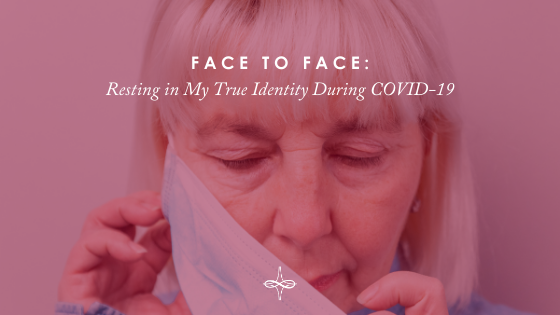

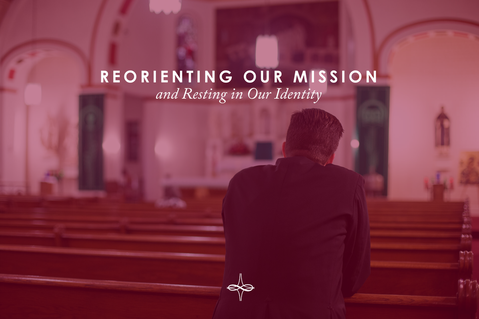

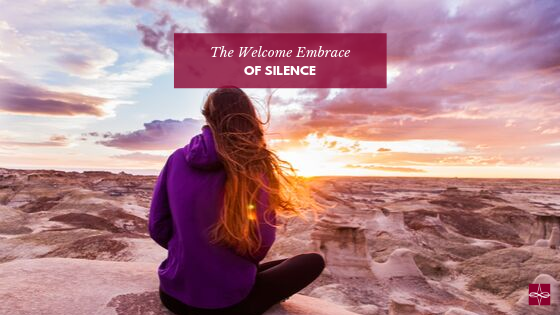

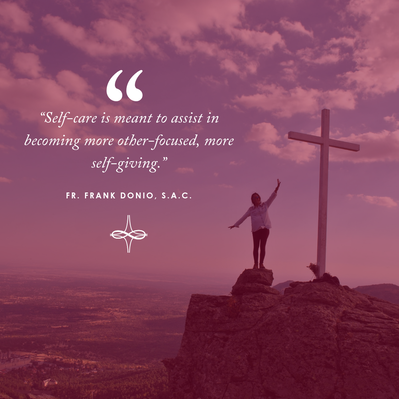
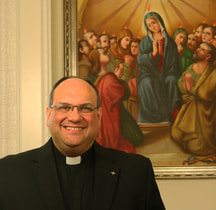
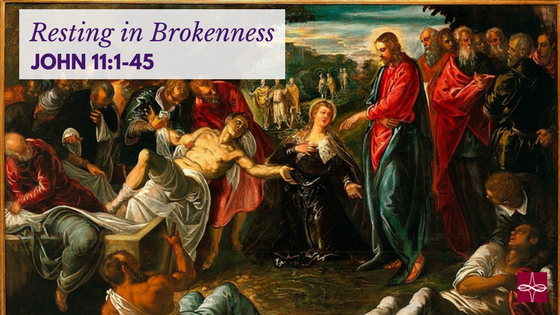


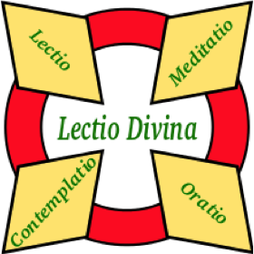

 RSS Feed
RSS Feed